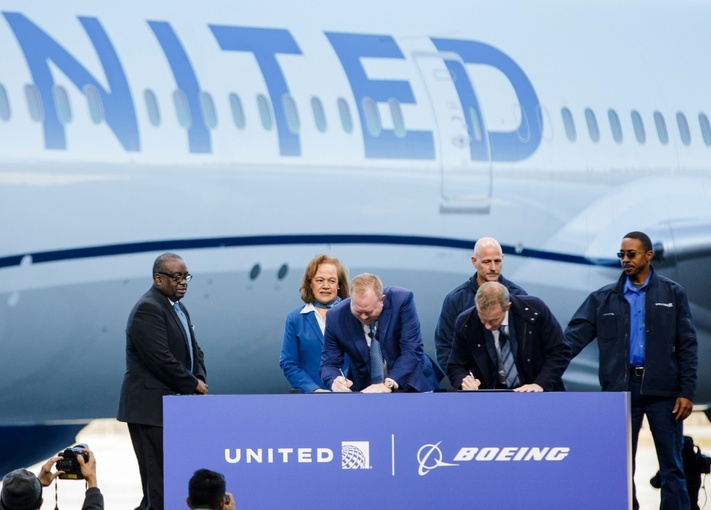Airbus consolidated its leadership in civil aviation for 2022 on Tuesday, reporting more orders and deliveries than American archrival Boeing as both companies contend with lingering supply chain challenges.
In terms of deliveries, Airbus finished the year having 661 planes arrive with clients, much higher than Boeing's 480.
But the Airbus lead in new contracts was slimmer, with its 820 net orders outpacing Boeing by just 12.
Still, the US giant notched a 40 percent jump in annual deliveries in its best year since 2018, prior to the lengthy global grounding of the 737 MAX after two deadly crashes and the massive travel downturn due to Covid-19.
Boeing's performance was plagued by a halt of more than one year to deliveries of the 787 Dreamliner, its other best-selling plane, which resumed deliveries only in August after an extensive back-and-forth with US air safety regulators.
"We worked hard in 2022 to stabilize 737 production, resume 787 deliveries, launch the 777-8 Freighter and, most importantly, meet our customer commitments," said Boeing Commercial Airplanes President Stan Deal.
"We will stay focused on driving stability within our operations and the supply chain as we work to deliver for our customers in 2023 and beyond," he added.
- Engine trouble -

The level of actual deliveries is "obviously less than we were targeting but given the complexity of the operating environment I want to thank the teams and our partners for the hard work and the ultimate result," said Airbus Chief Executive Officer Guillaume Faury.
Key suppliers in aviation have struggled with labor shortages, difficulties tracking down key materials and volatile energy prices following Russia's invasion of Ukraine.
Both companies have been forced to reset expectations about their capacity to build planes as quickly as the industry would like.
This comes as airlines are eager to boost flight numbers to take advantage of pent-up travel demand from the pandemic, while also looking to improve fuel efficiency and lower their carbon footprint.
Airbus reduced its output of the A320 to 40 per month during the pandemic, while previously targeting a monthly level of 65 at end-2023. But the company has pushed back this goal to 2024, citing supply chain issues.
Boeing in particular pointed to engines as a constraint on raising production of the 737 MAX beyond the current level of 31 per month.
Boeing Chief Executive Dave Calhoun said in October that the company had made progress with suppliers in terms of understanding the problem, but it would not be until late 2023 "before we can really make sizeable rate increases with respect to that constraint."
For Boeing, 2022 marks the fourth straight year it has lagged Airbus by a wide margin in terms of deliveries, which are closely monitored by Wall Street because they are tied to company revenues.
But the company's fourth-quarter was its strongest of the year for deliveries.
During that period, Boeing also announced significant new orders, including an agreement with United Airlines to add 100 units of 787 planes, in a sign of strengthening demand for long-haul transport amid the travel recovery.
In November, at Boeing's first investor day since 2016, the company signaled its expectation to return to a period of more robust financial performance in the 2025 to 2026 timeframe, with free cash flow reaching $10 billion in that period.
jmb-mra/bys
© Agence France-Presse
Your content is great. However, if any of the content contained herein violates any rights of yours, including those of copyright, please contact us immediately by e-mail at media[@]kissrpr.com.
Source: Story.KISSPR.com

